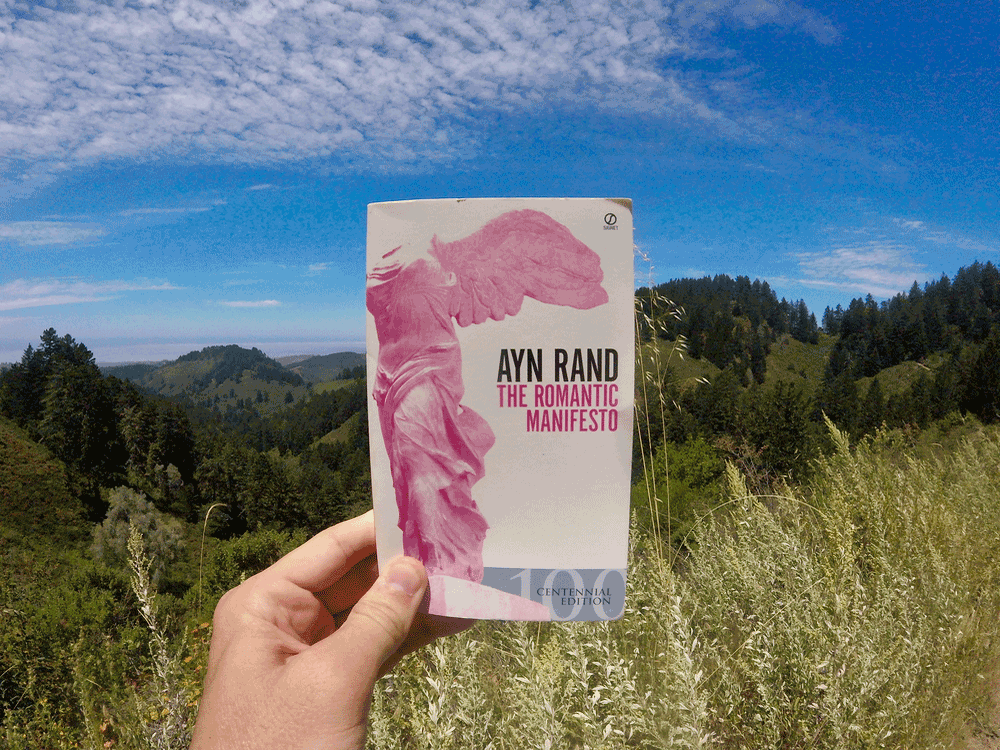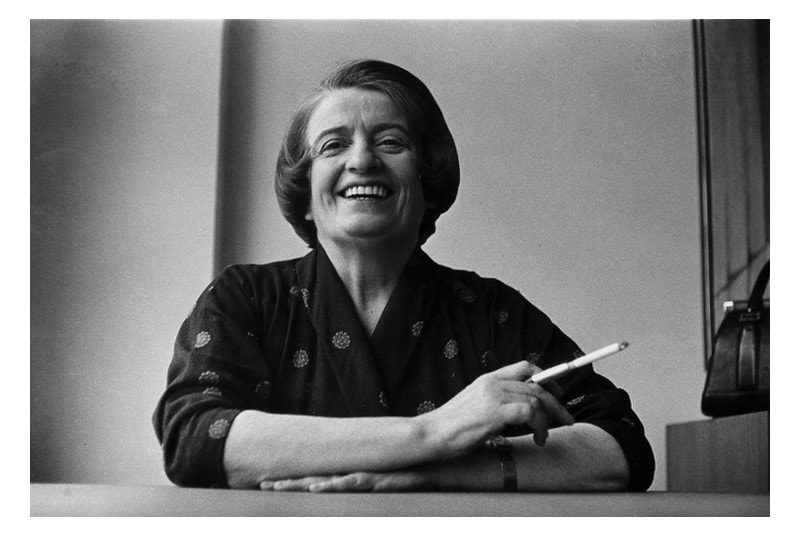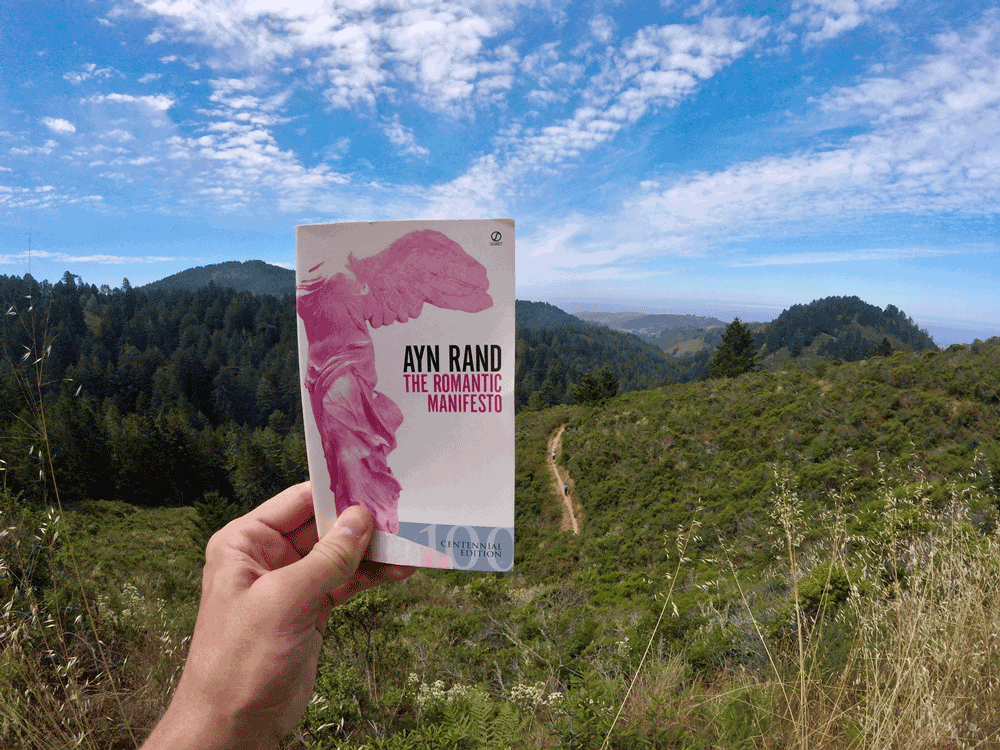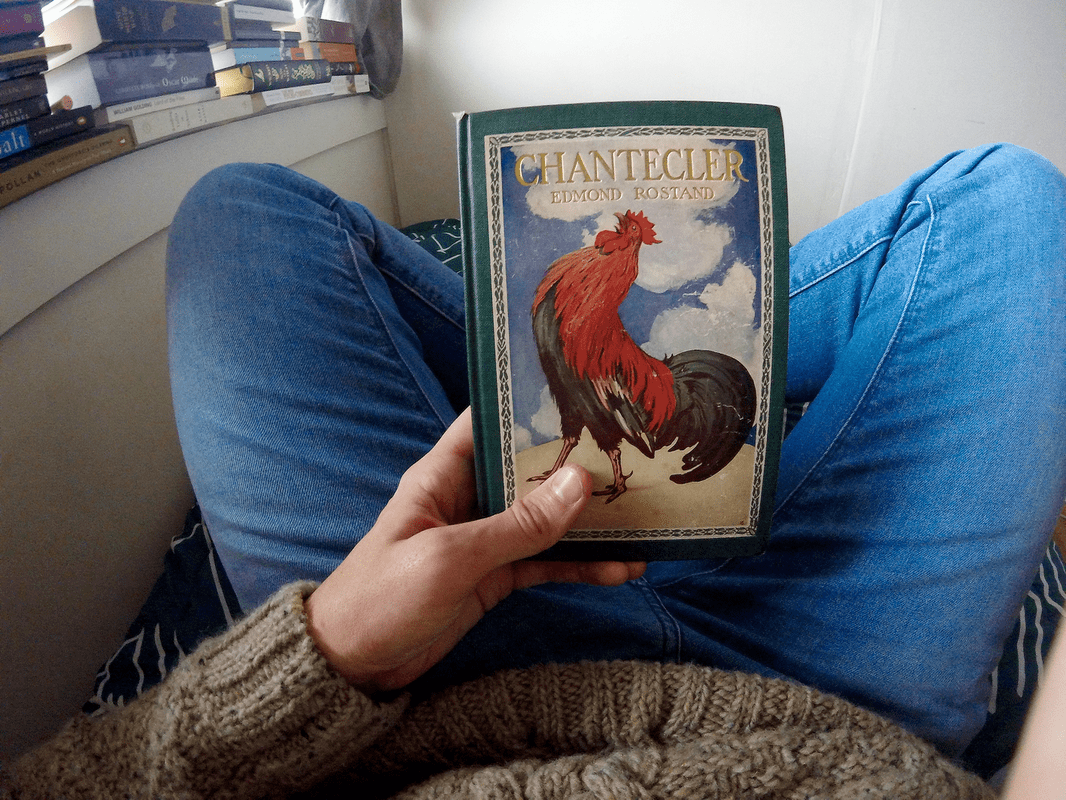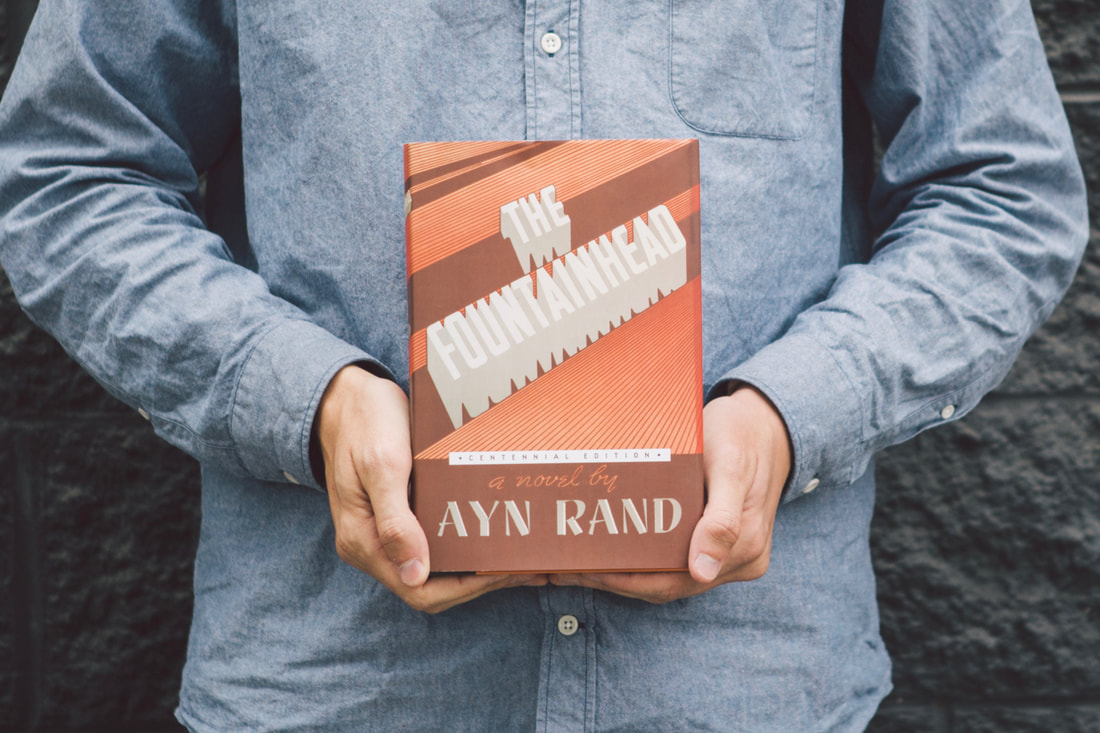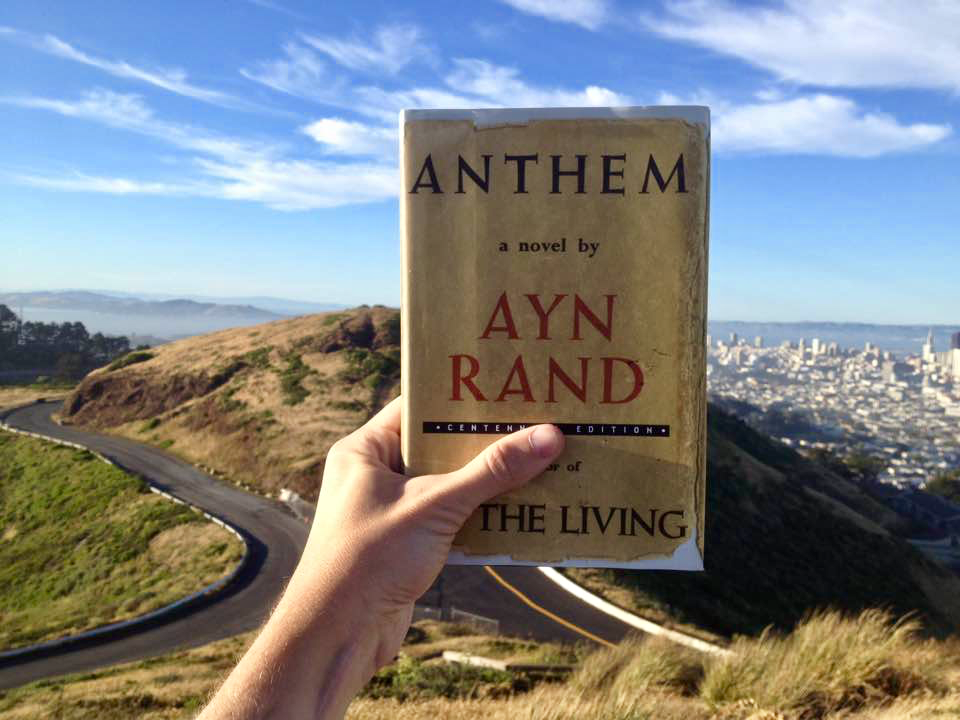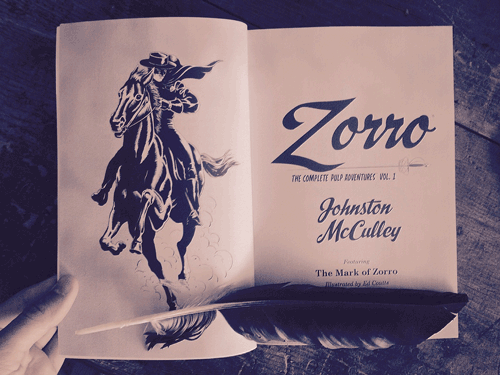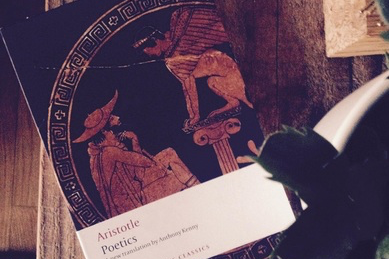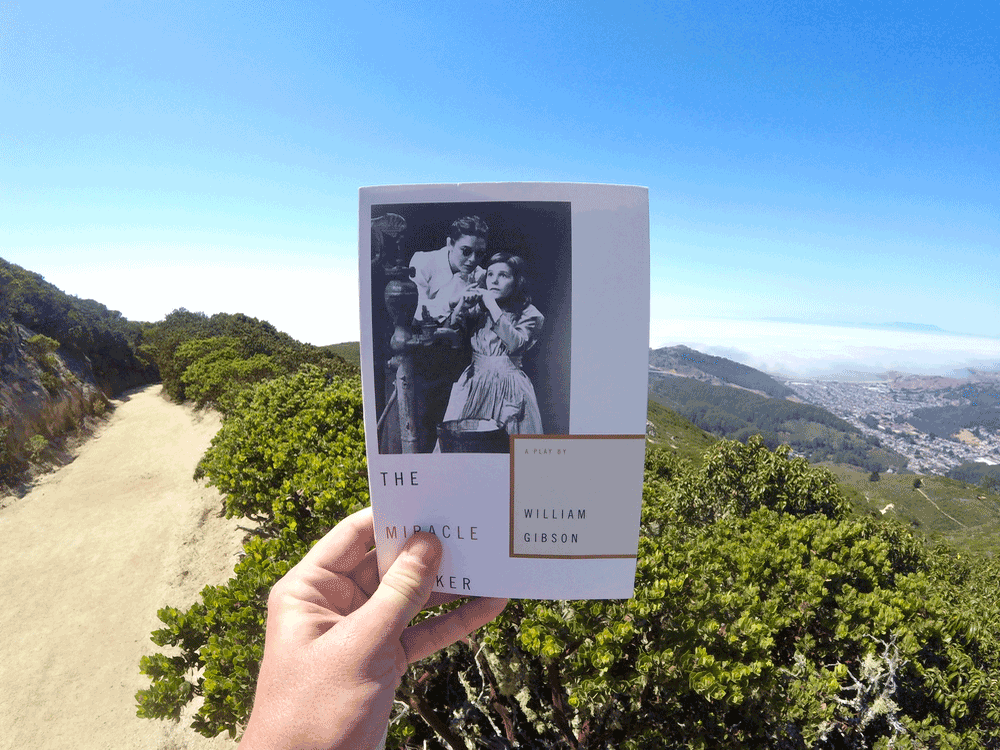| "...This manifesto is not issued in the name of an organization or a movement. I speak only for myself. There is no Romantic movement today. If there is to be one in the art of the future, this book will have helped it to come into being." — Ayn Rand, 1969 |
In The Romantic Manifesto, Ayn Rand sheds light on the role of art in our lives—its specific nature and inescapable power. Sifting through the conventional sentiments that art is closed to reason, judgement, and standards, Rand explores the vital, human role it plays in our lives to excite, edify, and even instruct. Far from an ammoral, subjective, anything-goes type approach to art's content (and form), she argues that art is a projection of its creator's ideas and normative values (whether they realize it or not). The psychological—both intellectual and emotional—feast that art can provide is greatly unknown, she contends, and needed more than ever with modern art collapsed into unintelligibility.
The work is structured into eleven essays (and one short story), elaborating on the basic principles of literature, the historical, and philosophical rivalry of two schools (Romanticism and Naturalism), Aristotle's influential Poetics, the psychological effects of Romantic art in a young person's development, and more.
The work is structured into eleven essays (and one short story), elaborating on the basic principles of literature, the historical, and philosophical rivalry of two schools (Romanticism and Naturalism), Aristotle's influential Poetics, the psychological effects of Romantic art in a young person's development, and more.
WHY I LOVE IT
The scope of this short work is immense. It's a primer of sorts for what she hopes will encourage a paradigm shift in the arts. The Romantic Manifesto is clearly written, and (thankfully) zero percent academic. The dozen chapters pack a punch, are easily digestible, and dramatically visual. I love how Rand goes right at the issues—celebrating and criticizing where she sees fit. Agree or disagree, her clarity and straightforward articulation lets you know exactly where she stands. Sure to raise questions about how you view your Netflix queue and some of today's bestselling fiction. [JG]
ABOUT THE AUTHOR
Ayn Rand (1905-1982), was a philosopher and novelist whose bestselling works include Anthem, We the Living, The Fountainhead, and Atlas Shrugged. I actually first encountered her ideas (indirectly) in the world of Rapture—that is, in a terrific video game called Bioshock—which explores her philosophy (and other thinkers like Nietzsche).
Rand comes at philosophy, history, ethics, politics, and art from very unconventional and unique angles, which I found baffling, yet exhilarating and refreshing. Her proud atheism and confident defense of reason (as opposed to mysticism and subjectivism), initially drew me to read Atlas Shrugged in high school. However, it was over my head. Plus the paperback font was insanely small! From what I could understand, I simultaneously loved her yet disagreed with her ethics and politics, but knew that I wanted to get a clearer picture.
Soon, a friend (who hates reading), nudged me to try The Fountainhead "just for the story." That's still where I recommend people begin. Rand asks timeless questions—and agree or disagree with her answers—her writing is passionate, precise, dramatic, and daring. They've led me to have some of the most personal and enjoyable discussions with friends and family over the years—as well as clarifying and helpful introspection. I can't recommend Ayn Rand enough. And for those interested in art and history, The Romantic Manifesto.
Rand comes at philosophy, history, ethics, politics, and art from very unconventional and unique angles, which I found baffling, yet exhilarating and refreshing. Her proud atheism and confident defense of reason (as opposed to mysticism and subjectivism), initially drew me to read Atlas Shrugged in high school. However, it was over my head. Plus the paperback font was insanely small! From what I could understand, I simultaneously loved her yet disagreed with her ethics and politics, but knew that I wanted to get a clearer picture.
Soon, a friend (who hates reading), nudged me to try The Fountainhead "just for the story." That's still where I recommend people begin. Rand asks timeless questions—and agree or disagree with her answers—her writing is passionate, precise, dramatic, and daring. They've led me to have some of the most personal and enjoyable discussions with friends and family over the years—as well as clarifying and helpful introspection. I can't recommend Ayn Rand enough. And for those interested in art and history, The Romantic Manifesto.
FAVORITE QUOTES
5. "The theme of a novel can be conveyed only through the events of the plot, the events of the plot depend on the characterization of the men who enact them—and the characterization cannot be achieved except through the events of the plot, and the plot cannot be constructed without a theme...this is why a good novel is an indivisible sum: every scene, sequence, and passage of a good novel has to involve, contribute to and advance all three of its major attributes: theme, plot, characterization."
4. "The contradictions inherent in determinism were obvious in [the Naturalist] movement from the start. One does not read fiction except on the implicit premise of volition—i.e., on the premise that some element...of the fiction story is applicable to oneself, that one will learn, discover, or contemplate something of value and that this experience will make a difference."
3. "Romanticism demands mastery of the primary element of fiction: the art of storytelling—which requires three cardinal qualities: ingenuity, imagination, a sense of drama."
2. "Too often humor is used as the camouflage of moral cowardice."
1. "To regard as [an author's] failure the fact that [their] characters are 'larger than life' is like regarding as an airplane's failure the fact that it flies."
4. "The contradictions inherent in determinism were obvious in [the Naturalist] movement from the start. One does not read fiction except on the implicit premise of volition—i.e., on the premise that some element...of the fiction story is applicable to oneself, that one will learn, discover, or contemplate something of value and that this experience will make a difference."
3. "Romanticism demands mastery of the primary element of fiction: the art of storytelling—which requires three cardinal qualities: ingenuity, imagination, a sense of drama."
2. "Too often humor is used as the camouflage of moral cowardice."
1. "To regard as [an author's] failure the fact that [their] characters are 'larger than life' is like regarding as an airplane's failure the fact that it flies."
| "When reason and philosophy are reborn, literature will be the first phoenix to rise out of today's ashes. And, armed with a code of rational values, aware of its own nature, confident of the supreme importance of its mission, Romanticism will have come of age." — Ayn Rand, The Romantic Manifesto |

